Guy Verhofstadt: MEPs need 100% certainty on citizens' rights
- Published
- comments
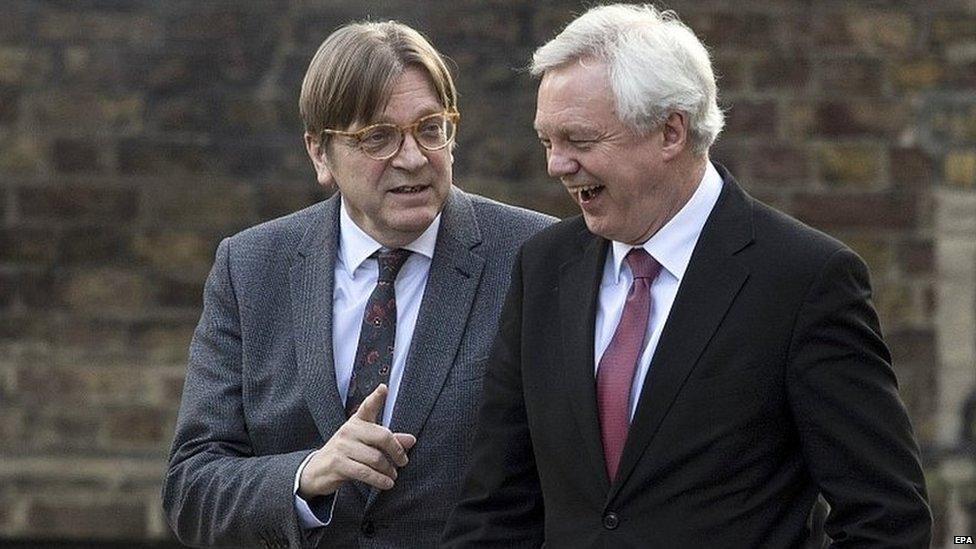
Home Office officials have been asked to convince the European Parliament the system for EU citizens in the UK will not become a "bureaucratic nightmare".
The parliament's Brexit chief Guy Verhofstadt said he had invited the officials to Brussels, after meetings with David Davis and other ministers.
Mr Verhofstadt said he wanted to ensure the rights of UK citizens in the EU as well as EU citizens in the UK.
The European Parliament has a veto on any eventual UK-EU Brexit deal.
Mr Verhofstadt met Brexit Secretary David Davis in 9 Downing Street, before moving to 10 Downing Street for meetings with Cabinet Office minister David Lidington and Home Secretary Amber Rudd.
The former Belgian prime minister, who last week called on Mrs May to come up with "credible proposals" for Brexit after her Mansion House speech on Friday, was briefed about plans for citizens' rights, and the Northern Ireland border.
'100% sure'
He said Home Office officials had accepted his invitation to explain how the new application system for settled status would work before the European Parliament's Civil Liberties Committee.
MEPs, he said, needed to be "100% sure" that the process would be simple and effective and the future of EU nationals in the UK and their British counterparts on the continent would be secured as soon as possible.
On the UK's future relationship with the EU, he warned against a web of agreements and arrangements on issues ranging from aviation to fishing which was not underpinned by some form of basic "architecture".
"How many (agreements) are we going to make without some global concept covering all this?" he said.
"Otherwise we cannot go forwards in these negotiations, certainly not in the second phase, and defining the future relationship."
The MEP suggested the "best way forward" for the UK was to stay "very near" to the EU's rules and standards, which he said would protect jobs.
'Arms and dogs'
The European Parliament will finalise its latest draft proposal on the framework of the future relationship between the European Union and the UK on Wednesday, ahead of a vote next week in Strasbourg, where the Parliament meets when it is not in Brussels.
Mr Davis told MPs that the UK had among the highest standards in Europe when it came to financial and environmental regulation.
Appearing before the Commons European Scrutiny Committee, he said should Parliament take the "ridiculous decision" to undercut European standards at some point in the future, it would do so in the knowledge there would be a "price" to be paid in terms of market access or tariffs.
Meanwhile, Irish Prime Minister Leo Varadkar has poured cold water on a suggestion by Theresa May that the customs arrangements on the US-Canada border could provide a model for the Irish border after Brexit.
"I visited it back in August, and I saw a hard border with physical infrastructure with customs posts, people in uniforms with arms and dogs and that is definitely not a solution that is one that we can possibly entertain," said Mr Varadkar.
Meanwhile, the DUP has stressed its opposition to the EU's "fallback" position - which would effectively keep Northern Ireland in the single market if no other solution could be found - in talks in Brussels with EU chief negotiator Michel Barnier.
Allow X content?
This article contains content provided by X. We ask for your permission before anything is loaded, as they may be using cookies and other technologies. You may want to read X’s cookie policy, external and privacy policy, external before accepting. To view this content choose ‘accept and continue’.
DUP leader Arlene Foster tweeted: "Just concluded a constructive meeting with Michel Barnier.
"There are sensible solutions to the border question. Greater flexibility needs to be shown by Brussels. Unacceptable for NI to be treated separately from rest of UK as set out in the draft EU legal text."
- Published5 March 2018
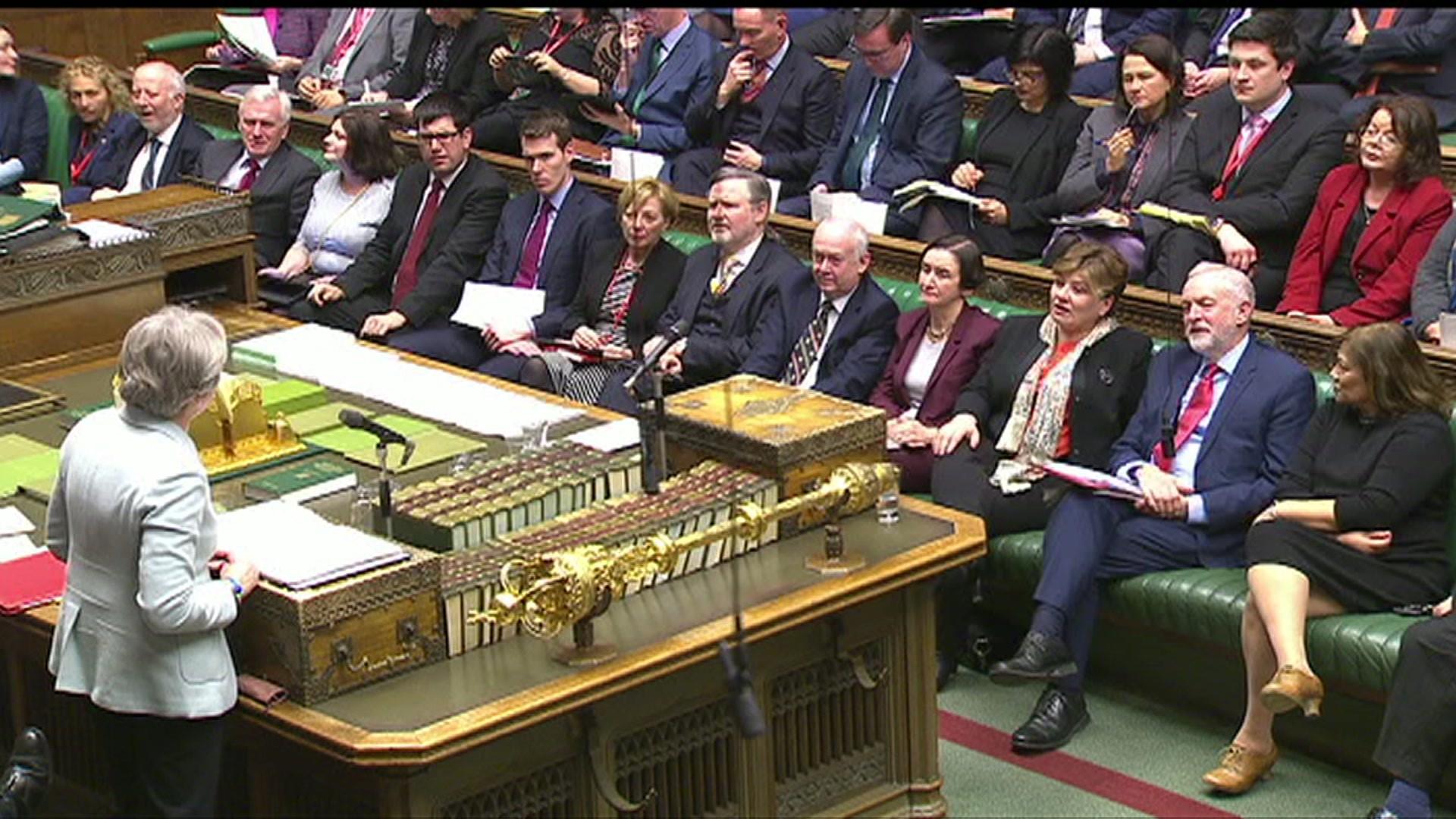
- Published5 March 2018
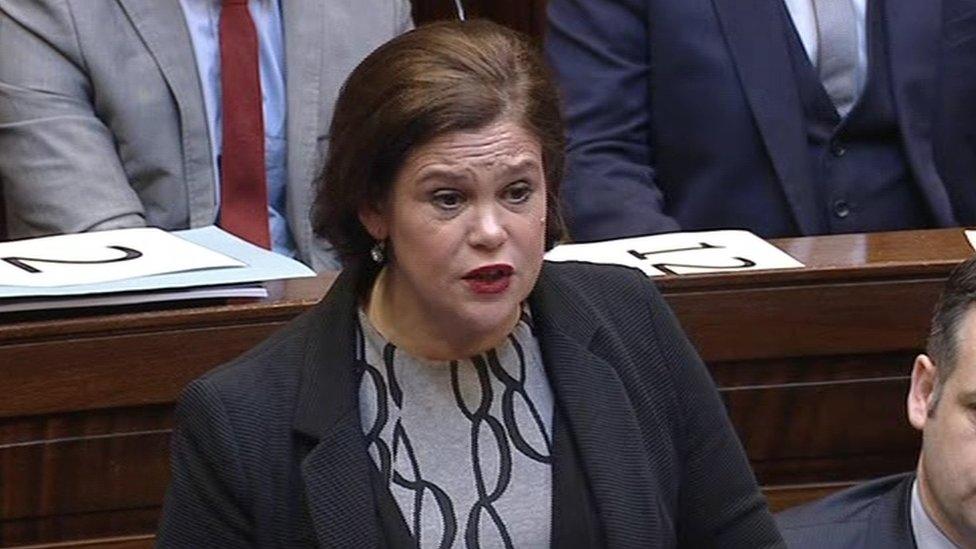
- Published4 March 2018
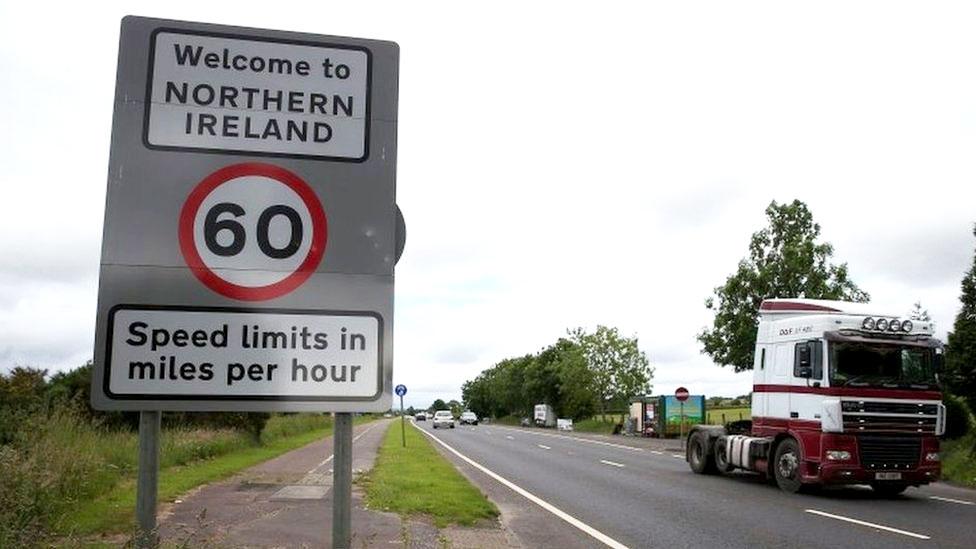
- Published2 March 2018
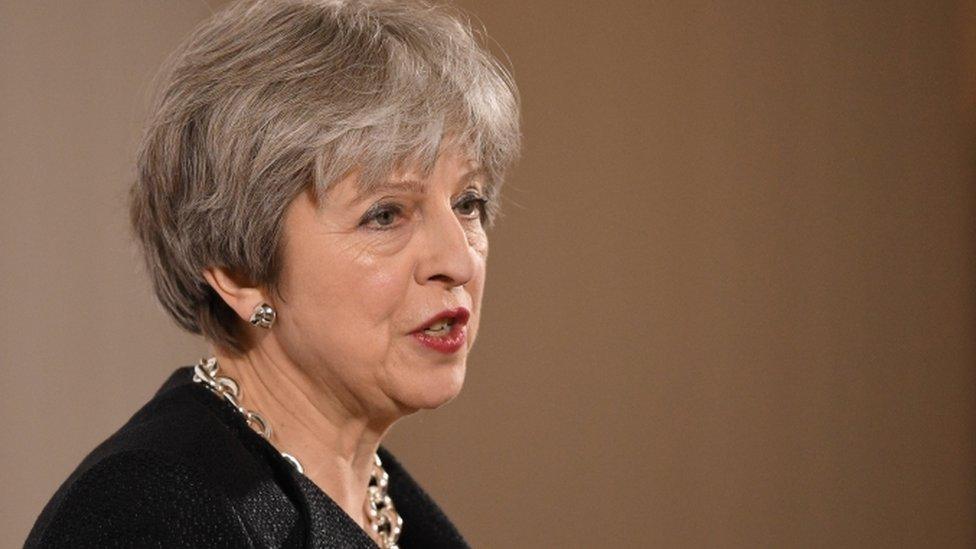
- Published2 March 2018
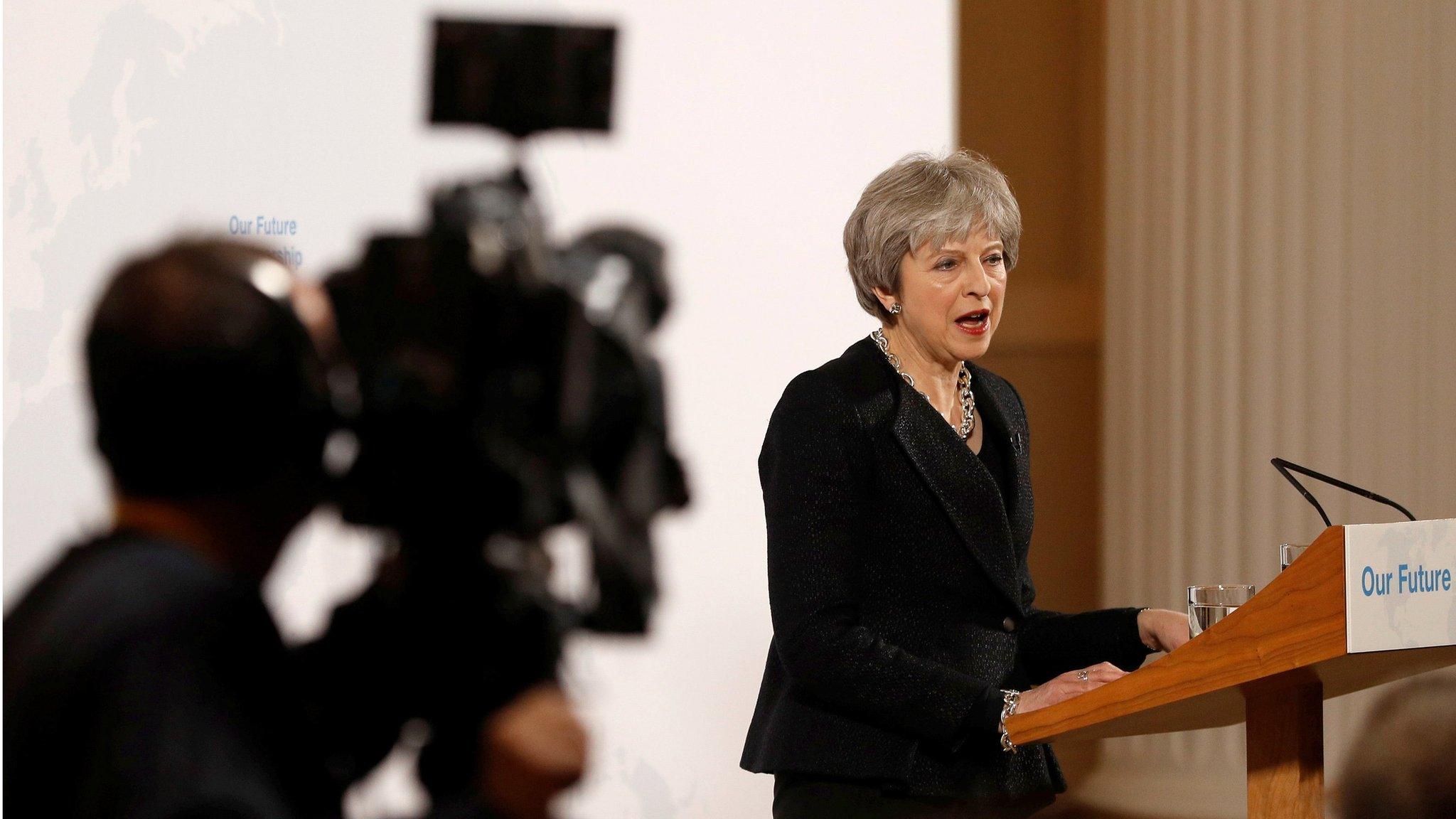
- Published30 December 2020
